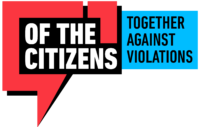Turning our attention to the national question we should take note of Russia’s highly patchy national composition, with the Russians making up only about 40 per cent, and the majority consisting of other nationalities. National oppression under the tsars, unmatched in savagery and absurdity, turned the rightless nationalities into great reservoirs of fierce hatred for the monarchs. It was not surprising that all Russians had been included in their hatred for those who went to the extent of prohibiting the use of the mother tongue, and doomed masses of people to illiteracy. It was assumed that the privileged Russians would try to retain the advantages which had been so assiduously preserved for them by Nicholas II and Kerensky.
We are told that Russia will disintegrate and split up into separate republics but we have no reason to fear this. We have nothing to fear, whatever the number of independent republics. The important thing for us is not where the state border runs, but whether or not the working people of all nations remain allied in their struggle against the bourgeoisie, irrespective of nationality.
“If the Finnish bourgeoisie are buying arms from the Germans in order to use them against their workers, we offer the latter an alliance with the Russian working people. Let the bourgeoisie start their filthy petty squabbles and their trading over frontiers, the workers of all countries and nationalities will not fall out over that sort of thing. (Stormy applause.)
“We are now ’conquering’ Finland—this is using a nasty word—but not the way the robber barons of international capitalism conquered it. We are winning Finland over by giving her complete freedom to live in alliance with us or with others, guaranteeing full support for the working people of all nationalities against the bourgeoisie of all countries. This union is based not on treaties but on the solidarity of the exploited against their exploiters.
This union is based not on treaties but on the solidarity of the exploited against their exploiters.
“We now see a national movement in Ukraine and we say that we stand unconditionally for the Ukrainian people’s complete and unlimited freedom. We must break the old bloody and dirty past when Russia was dominated by capitalist oppressors and played the role of executioner to other peoples. We are determined to wipe out that past, and leave no trace of it. (Stormy applause.)
“We are going to tell the Ukrainians that as Ukrainians they can go ahead and arrange their life as they see fit. But we are going to stretch out a fraternal hand to the Ukrainian workers and tell them that together with them we are going to fight against their bourgeoisie and ours. Only a socialist alliance of the working people of all countries can remove all ground for national persecution and strife. (Stormy applause.)
The First All-Russia Congress of tire Navy was held at Petrograd from November 18 to 25 (December 1 to 8), 1917. On its agenda were the following items: the current situation arid the question of power; the activity of the Central Committee of the Navy; reforms in the Navy Department, etc. It was addressed by Lenin, who spoke on tire current situation. It discussed the activity of Tsentroflot which had betrayed its electors and endorsed the activity of the Revolutionary Naval Committee which had dissolved Tsentroflot. It approved the organisational scheme for the administration of the Navy Department. and elected 20 men to the All-Russia Central Executive Committee of the Soviets of Workers’, Soldiers’ and Peasants’ Deputies. The Congress sent a message of greetings to the Council of People’s Commissars and an appeal to the whole of Russia.
Delivered: 22 November 1917
Source: Lenin’s Collected Works, Progress Publishers, Moscow, Volume 26, 1972, pp. 341-346
Translated: Yuri Sdobnikov and George Hanna, Edited by George Hanna



